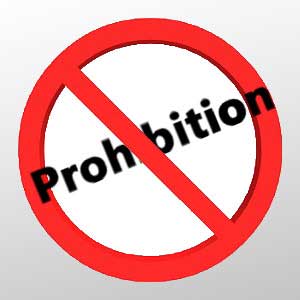Cannabis prohibition is a fatal policy which leads to the stoppable and tragic death of thousands of individuals. Supporting this unambiguously failed policy means that you find these deaths worth a policy intending to stop the usage of a non-lethal plant, which has undeniably failed to do so – after decades of trying.
One of the biggest causes of unnecessary deaths, due directly to prohibition, is the dangerous black-market it creates. Take Mexican drug cartels for example; they’re the cause of over 100,000 deaths in the past decade alone, many of them innocent people. If it wasn’t for cannabis prohibition, these cartels would be drastically less funded, and powerful; they receive over 60% of their profit from selling marijuana to the U.S., and a good portion of the remaining 40% selling it to Mexico residents.
If cannabis were legalized in both countries – without an absurd tax rate – these cartels would be cutoff from their biggest, easiest source of funding. The same is true with many domestic gangs in the U.S., which lead to countless murders in certain areas of states like California.
Looking beyond the hazards of the black-market, cannabis prohibition is the cause of numerous other needless deaths. For example; a study conducted by professors at theUniversity of Colorado Department of Economics and the University of Montana, and published by the Institute for the Study of Labor, found that states which have legalized medical cannabis have seen a drastic (11% among young adults) decrease in overall suicides. If cannabis were legal for all adults, this would likely be considerably higher. The exact reasons for this are unknown, but researchers believe it has to do with a simultaneous reduction in alcohol consumption. Another factor is that cannabis can help combat depression, which was validated by a study released earlier this year by the University of Kentucky.
Those supporting cannabis prohibition are ignoring the potentially thousands of suicides that could be prevented if the policy didn’t exist.
Loosening cannabis laws has also led to a large decrease in overall traffic fatalities in states which have legalized medical cannabis, something that obviously effects every driver regardless of their personal affiliation with the cannabis plant, according to a study published in 2011. The study, also published by the Institute for the Study of Labor, found that medical cannabis states saw a 9% reduction in traffic fatalities, due to the simultaneous 14% decrease in accidents where a drunk driver was involved. These findings are huge, and show that ending cannabis prohibition may lead to nearly 1 in every 10 traffic deaths being avoided, because there’s less drunk drivers on the road.
There are clearly other factors, some still unknown, which lead to cannabis prohibition being a fatal policy. As cannabis reform advocates we must use information and studies like the ones mentioned above to show prohibitionists – or at the least the public that they’re misinforming – that cannabis prohibition is a deadly, unnecessary policy.
Source: The Joint Blog









